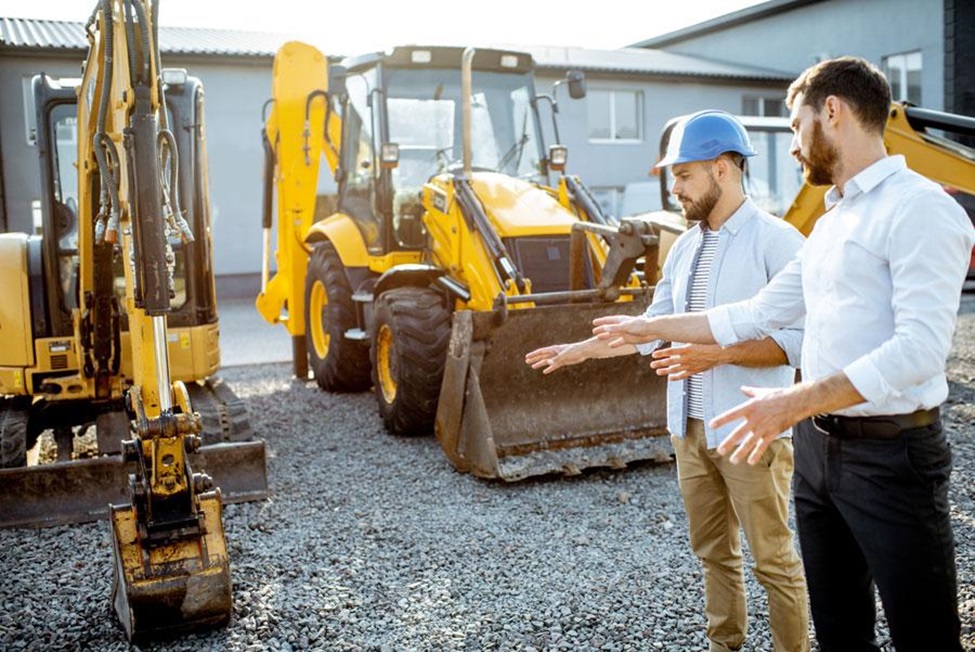
In the fast-paced world of construction, the debate between buying vs. renting equipment is a prevalent topic among contractors and construction companies. Both buying and renting construction equipment have their perks, but renting, in particular, commands a significant advantage for a variety of reasons. Here’s what you need to know when weighing the pros and cons of buying vs. renting construction equipment, with a preferential lens toward renting.
Flexibility and Cost-Effectiveness
Renting construction equipment offers unparalleled flexibility compared to purchasing. Projects vary in scope, size, and duration, making the one-size-fits-all approach of owning equipment impractical in many cases. Renting allows businesses to select the precise tools and machinery needed for a specific project without the commitment of a large investment. This flexibility extends to financial planning, as companies can allocate funds on an as-needed basis rather than tying up capital in machinery that may spend more time parked than in use.
Financial Benefits
The initial investment required to purchase construction equipment is substantial. Renting eliminates this barrier, freeing up capital for other vital aspects of a business, such as expanding the workforce or investing in marketing. Moreover, rental fees are often classified as business expenses, which can be deducted from tax obligations, further enhancing the financial attractiveness of renting over buying.
Maintenance and Storage Costs
Owning construction equipment comes with the responsibility of maintenance and storage, both of which can significantly increase the total cost of ownership. Every piece of machinery, from backhoes to cranes, requires regular maintenance to operate efficiently and safely. Storage costs also add up, especially for large equipment. On the other hand, when you choose quality forklift for hire in Sydney, the rental company typically assumes responsibility for maintenance and storage, relieving these logistical and financial burdens from the construction company.
Access to the Latest Technology
The construction industry is continually evolving, with technological advancements improving the efficiency, safety, and capabilities of machinery. Renting equipment enables construction firms to take advantage of the latest tech without the hefty investment required to purchase new models. This access to cutting-edge technology can be a significant competitive advantage, allowing companies to complete projects faster, safer, and to a higher standard.
Avoiding Depreciation Costs
Construction equipment depreciates over time, losing its value due to wear and tear. Depreciation is a significant concern for companies that own their machinery, as it affects resell value and, ultimately, the total cost of ownership. Renting circumvents this issue entirely, as the rental company bears the brunt of depreciation, allowing construction companies to focus solely on the project at hand without worrying about their equipment’s diminishing value.
Reducing Risk
Projects can face unforeseen changes or delays, impacting the need for specific types of machinery. Owning equipment adds a layer of risk, as companies may find themselves with expensive machinery that is no longer required. Renting offers a risk-averse solution by allowing companies to adapt to project changes more fluidly, selecting equipment that meets their current needs without the long-term financial commitment.
Conserving Capital for Strategic Growth
In any business, the allocation of resources is critical for sustaining operations and fueling growth. Renting construction equipment plays a vital role in capital conservation. By opting for rental, companies can maintain their cash reserves or allocate funds to other avenues that can provide a higher return on investment. Strategic investments such as expanding into new markets, research and development for improved construction methods, or training for skilled labor can be prioritized. The avoidance of a heavy initial outlay for equipment purchases allows for a more agile financial strategy, making it easier for businesses to react to market opportunities and invest in growth-oriented initiatives.
Environmentally-Conscious Decisions
Today’s market is not just about being profitable but also sustainable. The construction industry, often under scrutiny for its environmental impact, can make significant strides toward sustainability by choosing to rent equipment. Renting encourages optimal usage of resources, ensuring that the machinery is used efficiently across different projects rather than lying idle. This practice reduces the total number of machines needed, thus minimizing the carbon footprint associated with manufacturing, transporting, and maintaining this equipment. Environmental considerations are fast becoming a corporate priority, and renting construction equipment aligns with the green principles that many clients and stakeholders value highly.
Conclusion
While buying construction equipment may seem like a significant long-term investment, renting offers a range of benefits that cater to the dynamic nature of the construction industry. From financial flexibility, access to the latest technology, and avoiding maintenance and depreciation costs, to reducing overall risk, renting construction equipment is a viable and often preferred option for many construction companies. As the sector continues to evolve, the adaptability and cost-effectiveness of renting are likely to become even more compelling.




